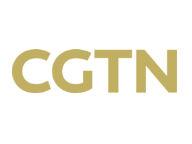Faculty News
—
Professor Samuel Craig discusses WWE's international expansion
—

Excerpt from the Stamford Advocate -- "'The key thing to do in expanding into any country is try to find a strong partner,' Craig said. 'For WWE, the model allows them to expand. For the local partner, it gives them additional content that basically represents an annuity that keeps providing revenues month after month and year after year.'"
Faculty News
—

Excerpt from the Stamford Advocate -- "'The key thing to do in expanding into any country is try to find a strong partner,' Craig said. 'For WWE, the model allows them to expand. For the local partner, it gives them additional content that basically represents an annuity that keeps providing revenues month after month and year after year.'"




















